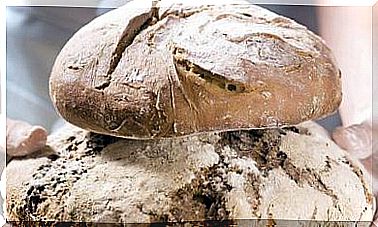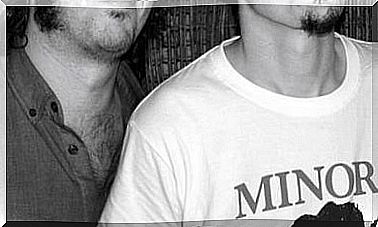Why Do We Behave Like Our Mothers (or Fathers)?
If we do not want to repeat the attitudes of our mothers / fathers with our own children, we have to deprogram the toxic learnings of our childhood.

When our children are born, when we rock our babies, a rather curious phenomenon happens to mothers and fathers. Almost without realizing it, we began to hum the same songs and lullabies that they used to sing to us when we were little.
Although we have spent several decades without thinking about these melodies, when we are with our children, we do not have to make any effort to remember them.
It is as if being a parent opens a magical portal endowed with the ability to move directly to the emotions, sensations and experiences of our own childhood.
However, this portal does not have a filter, so we do not always travel to fond memories. Sometimes we also connect with the dark parts of our past.
Tattooed attitudes in our unconscious
Just as we remember the most pleasant moments, our mind can bring us to the present memories, gestures, sensations and emotions that, although they were not so pleasant, are also part of our history.
Whether they were bad words that were directed against us or disrespectful attitudes such as threats or punishments, all this information remains for years stored in our unconscious, ready and ready to appear at the first opportunity that presents itself.
In motherhood / fatherhood, this situation usually occurs in situations of greater fatigue or high emotional tension, when our deepest brain takes control.
In these moments, the amygdala, our main center for emotional regulation and memory, overflows and overrides our rational part.
Just then, those words or attitudes that our elders directed us when we were little ones emerge in us.
Tension, stress, anguish, and the adults’ response to our emotional overflow, were stored inside us as a kind of secret programming.
We act as the adults around us did because that is how it was recorded in our memory through our sensations and emotions (and the hormonal flow derived from them).
These toxic learnings are presented automatically to take control of our actions.
Although we consciously deny these behaviors and, even if we have promised ourselves not to repeat them with our children, at certain moments in parenting, when we feel the same tension and the same emotions as in our childhood, they surface.
Are you repeating the educational model of your parents?
Laura had come to the consultation to work on her anxiety, but one day she came to the session scared by a discovery she had made.
She had realized that when she had a conflict with her daughter (who was 6 years old, then), she repeated the same words and the same threatening tone of voice that her mother used with her when she was little.
Laura confessed to me that, at first, she didn’t even realize what she was doing, and that it was her husband who told her that when he got angry with his children, he behaved like his mother.
She refused to believe it, however, when after working on a few sessions, Laura was able to begin to pay attention to how she was really reacting right now.
She was horrified to find that he used exactly the same phrases that she had heard so many times in her childhood and how they hurt her so much.
She repeated the phrases that marked her in her childhood: “you are worth nothing”, “you are clumsy” or “you will never get it”.
By recognizing these reactions from her present, she was able to connect with how she felt, in her childhood, when her mother told her.
This discovery helped her to empathize with her own daughter and see in her face the same emotions of amazement, fear and disappointment that she felt as a child.
How to avoid learned toxic reactions
The emotional connection with her daughter gave Laura the motivation she needed to work with her past and finally free herself from these toxic reactions learned in her childhood.
When we recognize in ourselves this type of internalized attitudes of our parents, we can turn it into an opportunity to pull the thread and draw this shadow from our past to understand, work on and change it.
It is not convenient to enter the negative circle of self-punishment (I am a bad mother / father, I will not be able to change).
Think that, although it seems that these reactions arise automatically and are part of you, this is not true, at some point in your life you learned from your parents’ model and assumed their words and their reactions as normal in stressful situations.
However, if they have been learned, we can always unlearn them and stop reinforcing them, to give priority to other attitudes that are much more respectful and healthy for everyone.









